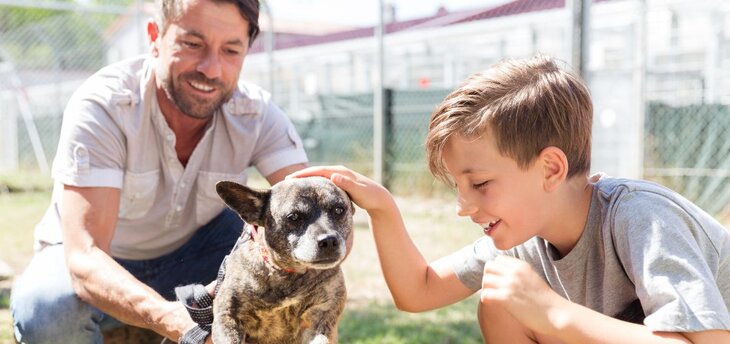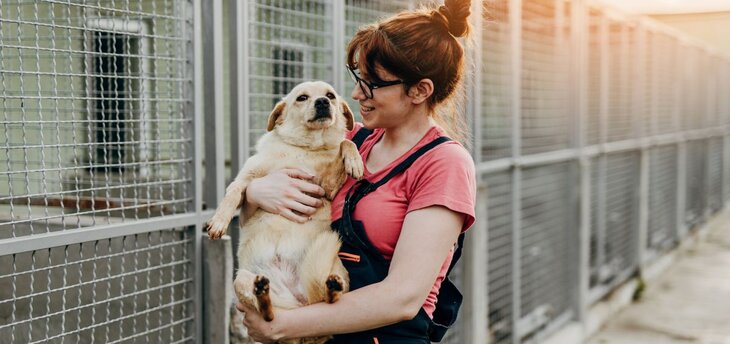Your Guide to Adopting a Dog: Key Considerations
Adopting a dog is a life-changing experience that not only enriches your own life but also transforms the life of the four-legged companion you choose to welcome into your family. To ensure a smooth and rewarding journey, this comprehensive guide to help you navigate the process of adopting a dog responsibly.
Self-Reflection: Understanding Your Lifestyle
Before taking the plunge into dog ownership, it's important to reflect on your own lifestyle. Dogs, like humans, have unique personalities, energy levels, and needs. Consider factors such as your daily schedule, activity level, living situation, and financial capacity.
Different dog breeds have different requirements, so it's essential to choose a dog whose needs align with your sustained lifestyle. You may have a season of hiking outdoors for a month or two, but is that something you will continue to do? Getting a high-energy dog that loves the outdoors may be a good fit for a short season, but what will your lifestyle be like in a year or two?

Finding the Perfect Match
Researching breed information is a vital step when adopting a dog. Each one has distinct characteristics, including size, energy level, grooming needs, temperament, and more. Some of these traits correlate to increased costs to you as an owner, making the cost to adopt certain dogs more expensive than others — for example, large breeds or those that need ongoing grooming.
Other dog breeds may be prone to specific hereditary conditions, such as hip dysplasia or cancer, which can dramatically increase the cost of vet care over your pet’s lifetime.
Make a list of traits that are important to you and your family, such as:
- Hypoallergenic coats
- Friendliness
- Intelligence
- Athleticism
Keep in mind that mixed-breed dogs can also make wonderful companions and may be available for adoption at local shelters. Get opinions from a variety of sources, including veterinarians, rescue organizations, and owners of similar dogs.
Also, decide whether a playful puppy or a mature adult dog suits your lifestyle. Puppies require more time, training, and patience, while adult dogs may already have some training and established behaviors. Consider your ability to invest time in socializing a puppy, as well as your family's preferences.
Visit Shelters and Rescues: Saving Lives, One Adoption at a Time
Consider adopting from local animal shelters or rescue organizations. Many dogs are in need of loving homes. By adopting, you not only gain a faithful friend but also contribute to reducing the population of homeless animals.
Visit shelters to meet potential dogs, ask lots of questions about their history and behavior, and spend time interacting with them to gauge compatibility. In many cases, you may be able to foster pets for a week or two prior to adoption to see how the dog interacts with your particular family structure.

Vet Check: Ensuring a Healthy Start
Once you've found a potential new family member, schedule a visit to the veterinarian for a comprehensive health check. If possible, schedule a veterinary visit before adoption to find any potential medical issues that may require ongoing costs for you.
A thorough examination will identify any existing health issues and help you make an informed decision. Ensure that vaccinations are up-to-date, discuss preventive care, and inquire about spaying or neutering options if they haven't been done.
Home Preparation: Creating a Safe Haven and Healthy Start
Once you determine which dog would best suit your situation, it’s time to prepare your home for them.
Get ready to welcome your newest family member by puppy-proofing the house. Remove hazards, secure loose wires, and create a designated space with a comfortable bed and toys.
Dogs thrive on routine, so establish a consistent feeding and exercise schedule to help them settle into their new home. Feeding your puppy or dog a balanced and nutritious diet is essential to your pet's overall well-being. Consult your veterinarian to determine the best food options based on the dog's breed, size, age, and any specific health concerns.
Regular veterinary check-ups will ensure that your dog maintains a healthy weight and receives the necessary nutrients.
Training and Socialization: Building a Strong Bond
Regardless of which type of dog you choose to bring into your family, they will inevitably need training as part of their care. It is important to invest time in training and socializing your new companion. Positive reinforcement techniques, consistency, and patience are key to teaching commands and shaping desirable behaviors.
Expose your dog to various environments, people, and other animals to promote socialization and prevent behavioral issues.
Regular Veterinary Care: Promoting Lifelong Health
Establishing a strong relationship with your veterinarian is crucial for your dog's ongoing health. Schedule regular check-ups, vaccinations, and preventive care appointments. Discuss parasite control, dental care, and any concerns you may have about your dog's well-being.
Finally, remember that adopting a dog is a commitment to a lifelong relationship. Dogs offer unconditional love, loyalty, and companionship. Cherish the moments you share, provide love and care, and enjoy the unique bond that will undoubtedly enrich your life in ways you never thought possible.
Embarking on the journey of dog adoption is a rewarding experience that requires thoughtful consideration and commitment. By following this comprehensive guide, you are not only ensuring the well-being of your new furry friend but also setting the foundation for a fulfilling and lasting companionship.
Do you want to find the best pet insurance?
Let's analyze your pet's breed, age, and location to find the right coverage and the best savings. Ready?
Analyze My PetAbout Pawlicy Advisor
The pet insurance marketplace endorsed by veterinarians, at Pawlicy Advisor we make buying the best pet insurance easier. By comparing personalized coverage and pricing differences we can save you a ton of money, up to 83% in some instances!
Instantly Compare Pet Insurance Plans
Guides
Determine If Pet Insurance Is Worth It
Comparison Charts
Find Your State
Dog Insurance
DVM
Adam Thompson, DVM, is a small animal veterinarian at a private practice in north Alabama. He enjoys educating pet owners and providing them with the best care possible for their pets. He has a passionate interest in nutrition, dentistry, dermatology, and preventative medicine. Dr. Thompson is married to his wife (also a veterinarian), and they have two children. They also have a Boston Terrier mix named Newman.
